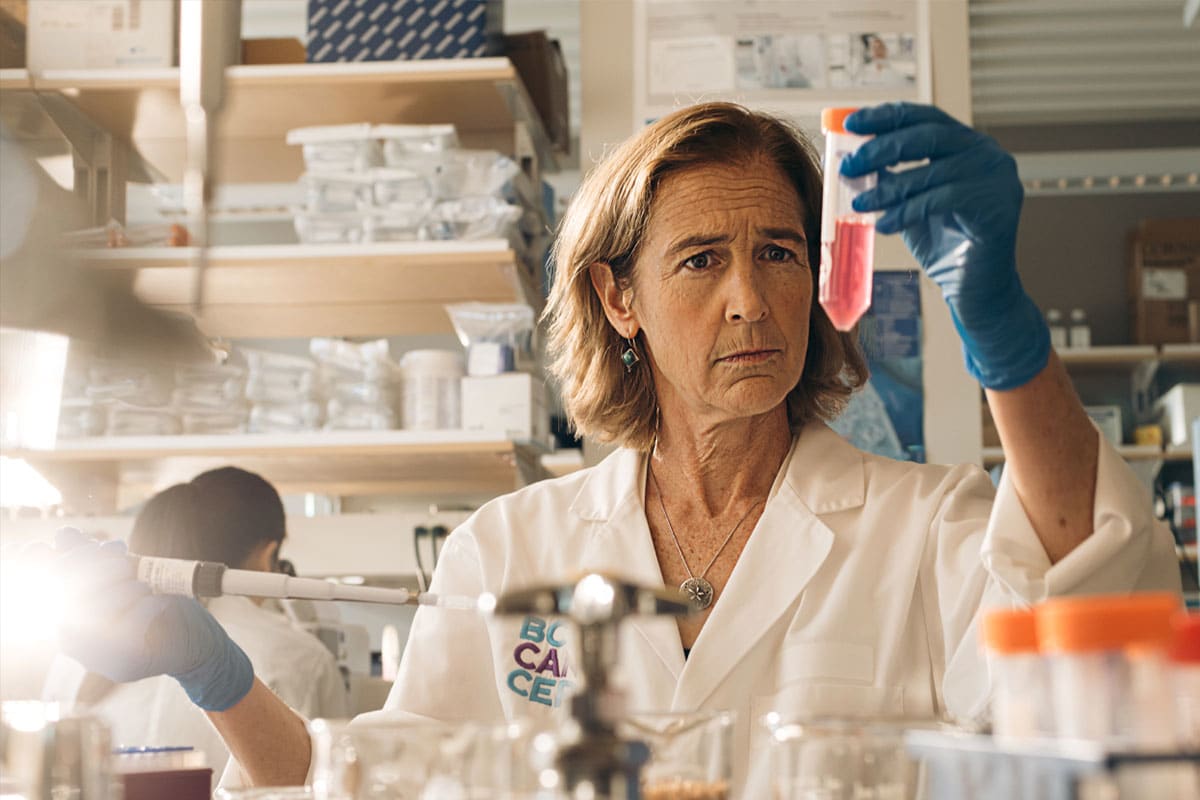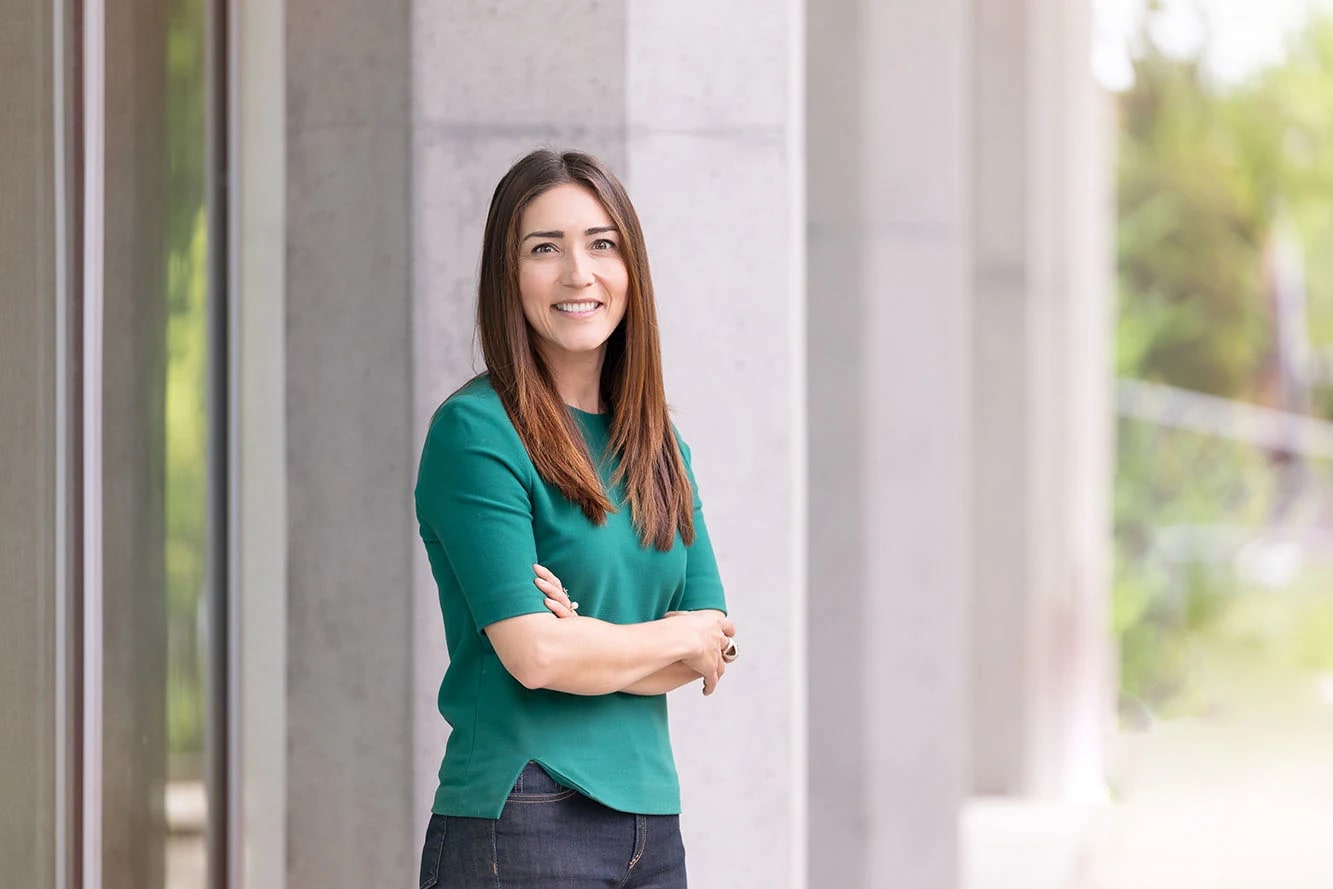AI in Action: Gynecological Cancers
October 31, 2025
Found in General, Gynecologic Cancer, Innovation
BC Cancer is harnessing artificial intelligence (AI) to uncover new insights and improve outcomes across multiple cancers, with multidisciplinary teams of clinicians, researchers and computational scientists driving innovations that place B.C. at the forefront of global precision oncology.

Meet BC Cancer’s Gynecological Cancer Initiative (GCI) team, who along with BC Cancer’s lung cancer team, are using AI to transform diagnosis and treatment, turning research into real-world impact for patients.
Cracking the Code on Gynecological Cancers
The GCI brings together the brilliant minds of BC Cancer and other leading B.C.-based research institutions to accelerate transformative research on prevention, detection, treatment, and survivorship of gynecologic cancers.
Redefining Endometrial Cancer Care
One of their most transformative breakthroughs is the PROMISE molecular test, which has revolutionized care for patients with endometrial cancer. Before PROMISE, pathologists relied primarily on visual assessments of tumours, which had inconsistent results.
Patients could possibly be overtreated or undertreated, possibly missing an opportunity for cure. Another consequence of this challenge was that clinical trials for new treatments lacked consistency in crucial data.
That all changed when molecular classification became the global standard of care in 2020.
“Today, you will not get an endometrial cancer diagnosis without knowing your molecular subtype,” says Dr. Jessica McAlpine, BC Cancer gynecological oncologist and GCI investigator. “It’s changed everything — from how we operate, to what treatments we offer, to whether a patient can be spared treatment altogether.”
When AI Sees What Humans Can’t
But even with PROMISE, one subtype — NSMP (No Specific Molecular Profile) — remained a challenge. NSMP makes up about half of all endometrial cancer cases and includes both patients whose cancers are at low and high risk of recurring or spreading. That’s where artificial intelligence came in, says Dr. McAlpine.
“We asked: can AI see something in these pathology images that we can’t? And the answer was yes.”

Working in close collaboration, Dr. McAlpine and Dr. Ali Bashashati, a computational scientist with the GCI, developed an AI model to identify a previously unknown high-risk subgroup within NSMP. This discovery will help inform how patients are treated and how their prognosis is understood.
“This isn’t just AI helping pathologists in their work,” explains Dr. Bashashati.
“This was AI uncovering new knowledge — a new subtype we didn’t know existed. That’s the untapped potential of AI in cancer care.”
The team is now preparing to launch a pilot program to test how the AI-powered NSMP subgroup diagnostic tool can be integrated into real-world clinical workflows across the province.
Turning One Discovery Into Many
Beyond endometrial cancer, the GCI is expanding its AI approach across more than 10 cancer types, positioning B.C. as a leader in AI-driven cancer research in Canada and on the global stage.
“We’ve built a system where AI components can be reused across different cancers,” says Dr. Bashashati. “By building smarter – designing modular AI components like Lego blocks – we can quickly adapt them for new applications, accelerating development and scaling across projects without needing impractical levels of new staffing, infrastructure or financial resources.”
“We’re not just thinking about what’s possible,” adds Dr. McAlpine. “We’re thinking about how to implement it and how to make it real for patients.”
This research is more urgent than ever with incidences and mortality rates in some gynecological cancers, such as uterine cancer, on the rise, especially among certain populations.

Help Drive Innovation in Cancer Care Using AI
Support BC Cancer's world-leading research in harnessing the power of AI to improve outcomes in gynecological cancers.
Donate Today

